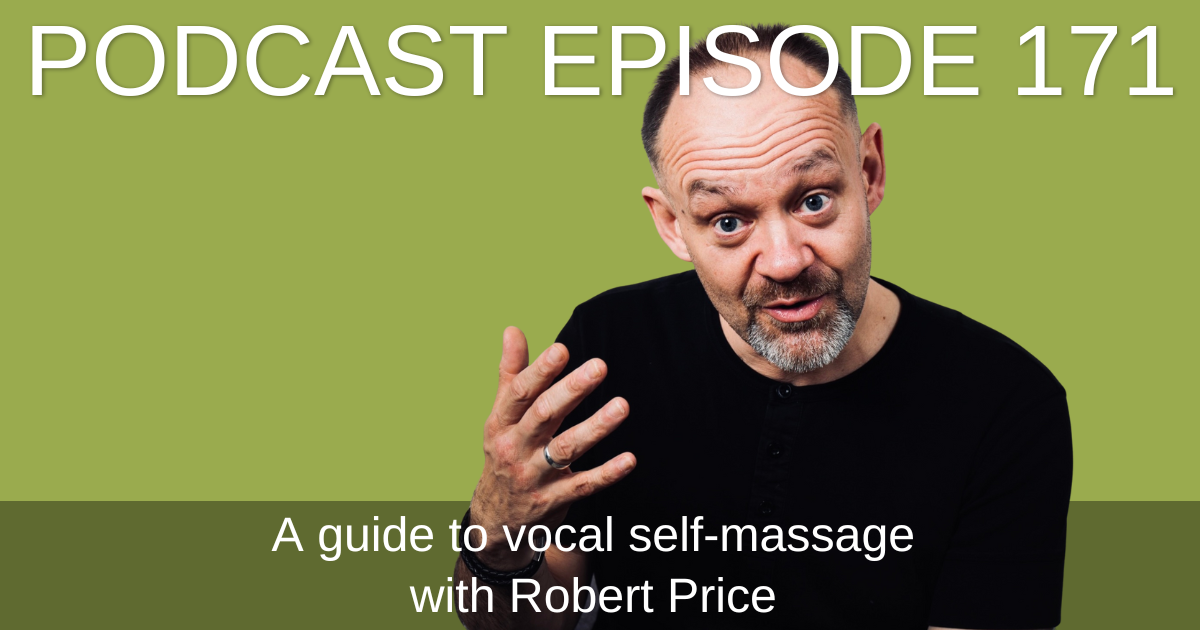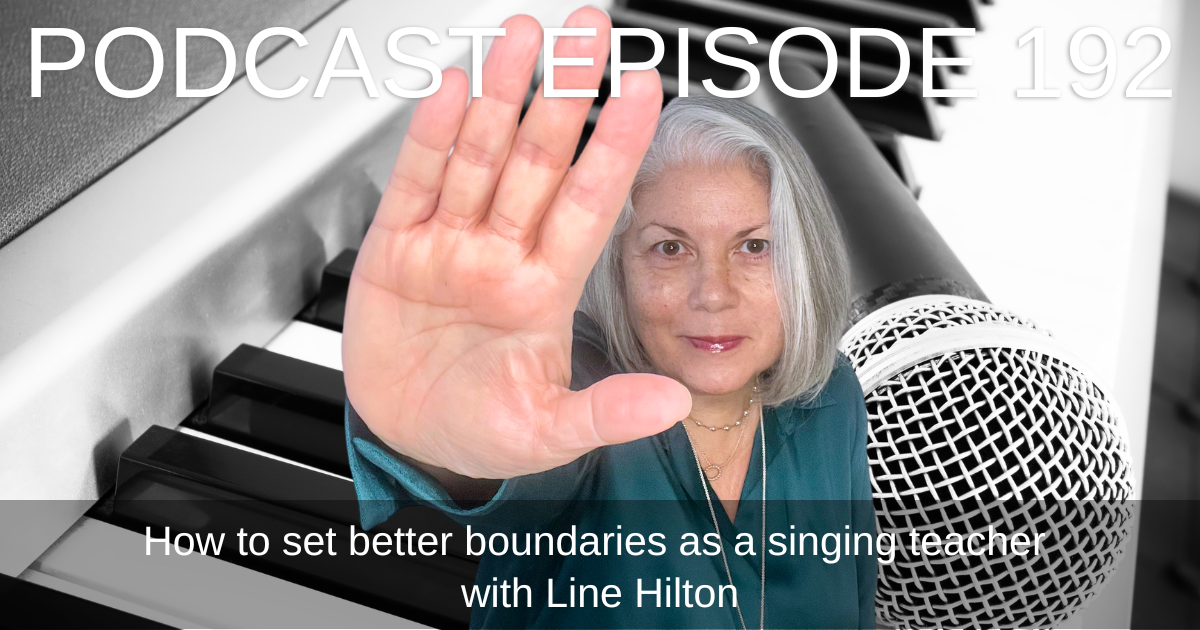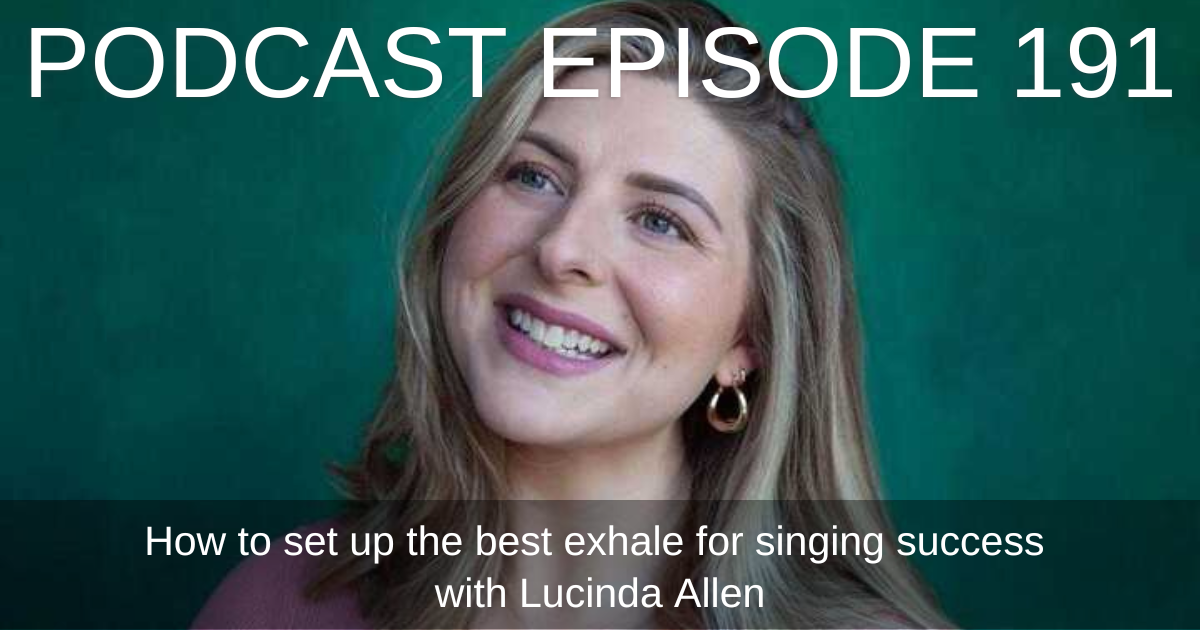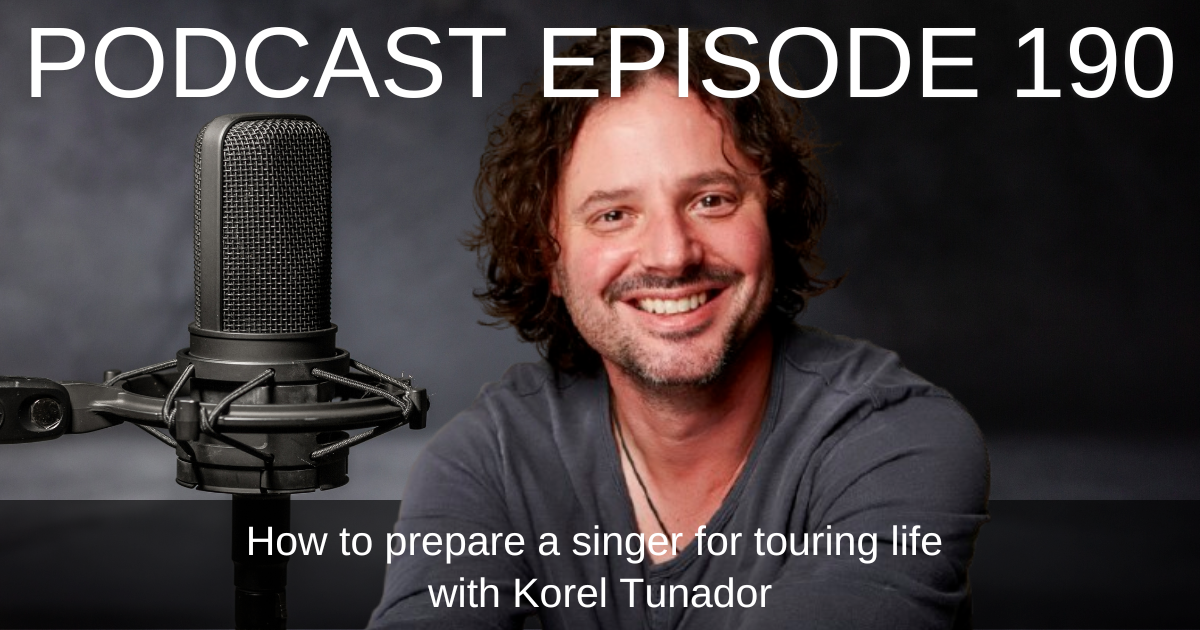Robert Price is a voice teacher, director, and level five advanced clinical massage therapist specialising in the voice and jaw. He trained in voice studies at the Central School of Speech and Drama before teaching and directing in many drama schools and currently serves voice users at his Vocal Massage London and at the Voice Care Centre. Robert teaches vocal massage to other teachers, osteopaths, physiotherapists, and SLTs, and he’s here to help us understand how we can perform massage on ourselves and guide our clients in self-massage in the studio.
KEY TAKEAWAYS
- Robert finds massage beneficial for stress and anxiety. He discusses how vocal massage helps shift from a sympathetic to a parasympathetic state, calming the nervous system and fostering connection.
- Individuals should listen to their bodies and engage in self-massage with care, avoiding extremes and focusing on gentle, thoughtful touch. Robert also recommends seeking professional training for those interested in pursuing vocal massage as a practice.
- Robert’s vocal massage techniques for stress management include gently mobilising the larynx, performing anterior neck stretches, massaging the submental region, encouraging thoughtful self-touch, using a holistic approach with whole-body techniques like Qigong, and ensuring consent-based touch. These methods promote relaxation, improve mobility, and reduce tension in the vocal area.
- Example Daily Routine. Morning: Start your day with a few minutes of gentle neck stretches and submental massages. Afternoon Break: Take a short break to practise deep breathing and light self-massage on your neck and shoulders. Evening: End your day with a more extended self-massage session, focusing on the entire neck and throat area, and incorporating whole-body stretches.
BEST MOMENTS
“The fundamental value of massage is to move people from a sympathetic state to a parasympathetic state.”
“The benefits of vocal massage are subjective. It usually helps people, but quite what’s happening within that is about the person.”
“Consent and safety are at the heart of manual therapy. The person should have agency over the touch and feel comfortable throughout the session.”
EPISODE RESOURCES
Guest Website:
- Vocal Massage London : vocalmassagelondon.com
- Voice Care Centre : voicecarecentre.co.uk
- Vocal Massage Training : voicecarecentre.co.uk/vocal-massage-training
Social Media:
- Instagram: @robertprice1969
- Email Robert directly: robert@vocalmassagelondon.com or robertprice1869@gmail.com
BAST Level 5 Singing Teacher Training Qualification
Relevant Links & Mentions:
- (Podcast) Singing Teachers Talk Ep.32 The Bio-Psycho-Social Model with Stephen King
- (Podcast) Singing Teachers Talk Ep.90 Help! I’ve Got a Voice Problem with Lydia Hart and Stephen King
- Voice Care Centre: voicecarecentre.co.uk
- Stephen King at the Voice Care Centre: voicecarecentre.co.uk/stephen-king
- (Podcast) Singing Teachers Talk Ep.74 Understanding Manual Therapy with Walt Fritz
- (Podcast) Singing Teachers Talk Ep.65 The Top Benefits of Vocal Massage with Lydia Flock
- Feldenkrais Method: feldenkrais.com/about-the-feldenkrais-method
- Qigong Practice
ABOUT THE GUEST
Robert is a voice teacher, director, and Level 5 Advanced Clinical Massage Therapist specialising in the voice and jaw. He trained in voice studies at the Central School of Speech and Drama and has taught at RADA, LAMDA, ArtsEd, Central, East 15, Rose Bruford, and The Lir. He works at the Voice Care Centre in Soho and runs Vocal Massage London. Robert also teaches vocal massage to professionals globally.






